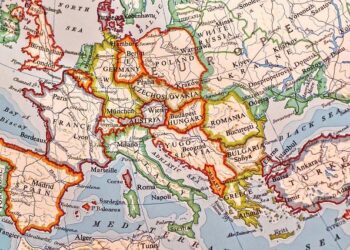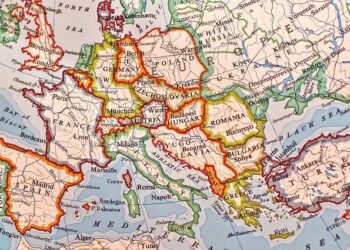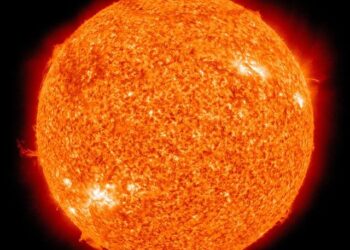In a significant pivot in its national defense strategy,Poland is actively pursuing access to nuclear weapons amid escalating geopolitical tensions in Europe. As part of this bold initiative, the Polish government has also announced plans to substantially expand its military forces, aiming to establish an army of half a million personnel. This ambitious move reflects Poland’s growing concerns over security threats in the region, notably in light of Russia’s aggressive actions in Ukraine and its historical military posture. As Warsaw seeks to bolster its defense capabilities and assert its role within NATO, this development raises critical questions about the future of European security architecture and Moscow’s response to Poland’s military enhancements. In this article, we examine the motivations behind Poland’s quest for nuclear arms, the implications of a larger standing army, and the broader ramifications for regional stability and NATO’s collective defense strategy.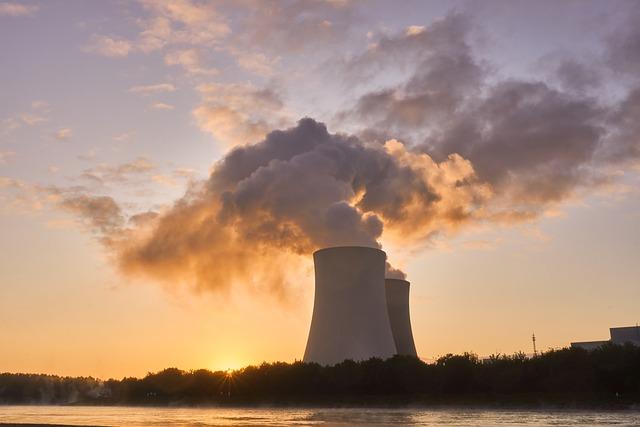
Polands Strategic Shift toward Nuclear Deterrence
Amid escalating geopolitical tensions, Poland is actively seeking to bolster its national security through an assertive military strategy centered on nuclear deterrence. As threats from an increasingly aggressive Russia loom, Warsaw has signaled its intent to engage in discussions with its NATO allies regarding possible access to nuclear weapons. This shift underscores Poland’s commitment to safeguarding its sovereignty while also participating in a broader European security framework.In addition to strengthening its nuclear posture, the Polish government is considering a significant expansion of its conventional military forces, envisioning an army of up to half a million personnel.
This strategic amplification is indicative of Poland’s dedication to enhancing its defense capabilities in the face of contemporary security challenges. To support this ambition, key components of the proposed military expansion include:
- Increased Defense Budget: Allocating ample funding toward military modernization and procurement.
- Enhanced Training Programs: Improving military readiness through comprehensive training initiatives.
- Strategic Partnerships: forging deeper military alliances within NATO and collaborating with other global powers.
Furthermore, Poland is expected to focus on bolstering its infrastructure to support this growing military force. investments will be made in advanced technologies and equipment, ensuring that Poland not only increases its manpower but also enhances the operational capabilities of its armed forces.
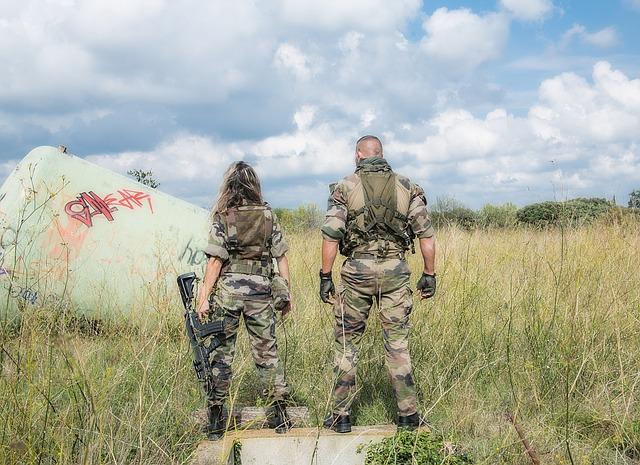
The Implications of a Half-Million-Man Army for Regional Security
The establishment of a half-million-man army in Poland signals a significant shift in the balance of power within Central and Eastern Europe. This ambitious military expansion not only aims to strengthen Poland’s defense capabilities but also serves as a deterrent against potential aggressors, particularly considering rising tensions with neighboring countries. The implications for regional security are profound, as such an augmentation could lead to a military arms race, thereby destabilizing the region further. Some key considerations include:
- Heightened Military Tensions: The buildup of military forces may provoke neighboring countries to enhance their own military capabilities, possibly leading to an arms race.
- Increased NATO Presence: Poland’s expanded army might prompt a reevaluation of NATO defense strategies, requiring more resources and attention from alliance members.
- International Relations: Countries like Russia may interpret Poland’s military ambitions as a direct threat, which could sour diplomatic relations and lead to further geopolitical instability.
moreover, the pursuit of nuclear arms access adds a complex layer to Poland’s defense architecture. It raises significant questions regarding the balance of deterrence and the potential for escalation in conflict scenarios. The combination of a large ground force with nuclear capabilities could lead to heightened anxieties among both allies and adversaries. A table summarizing the potential impact areas is as follows:
| Impact Area | Description |
|---|---|
| Regional Stability | Potential for increased conflict due to military buildups. |
| Diplomatic Relations | Strain on existing alliances and partnerships. |
| Defense Spending | Possible rise in military expenditures across the region. |

Analyzing Polands Defense Budget and Military Modernization Plans
Poland’s defense budget is on an upward trajectory as the nation prioritizes military modernization amidst a shifting security landscape in Europe. The Polish government has earmarked significant funds for the enhancement of its armed forces, aiming to bolster capabilities in response to perceived threats, particularly from Russia. Central to this initiative is the plan to expand the military personnel count to half a million, thereby substantially increasing the nation’s defense readiness. Key aspects of this modernization strategy include:
- Investment in Advanced Technology: poland is focusing on acquiring cutting-edge equipment, including air defense systems and armored vehicles.
- Increased NATO Cooperation: Strengthening partnerships with NATO allies remains a priority, with joint exercises and collaborative projects set to enhance operational interoperability.
- Domestic Defense Industry Growth: The government aims to foster its domestic defense sector, promoting local arms production as part of its broader strategy.
Moreover, as part of its efforts to elevate national security, Poland is actively seeking access to nuclear arms, viewing them as a critical deterrent against existential threats. The discourse around nuclear capabilities reflects a broader trend among Eastern European nations feeling the pressure of geopolitical tensions. Considering this, Poland has initiated discussions emphasizing three core strategies:
| Strategy | Description |
|---|---|
| Deterrence | Bolster military presence to deter aggression from neighboring states. |
| Force Expansion | Increase personnel strength to enhance overall military readiness. |
| Nuclear Accessibility | Engage in dialog with allies for potential nuclear defense frameworks. |
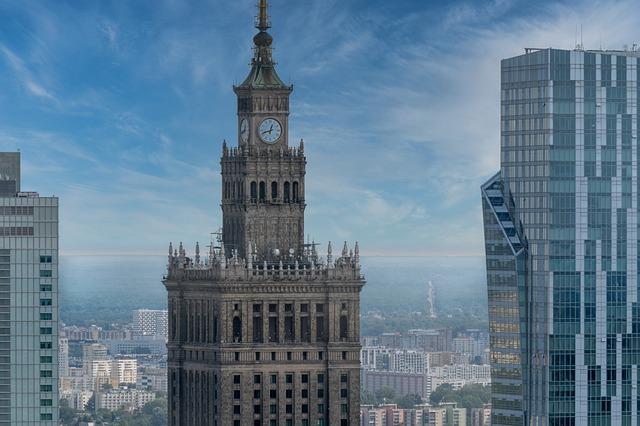
International Reactions to Polands Nuclear Ambitions
The announcement of Poland’s ambition to obtain nuclear capabilities has elicited a spectrum of international reactions, reflecting concerns over escalating militarization in Eastern Europe. Key players such as the United States and NATO have reaffirmed their commitments to regional security, emphasizing the importance of unity against perceived threats. these alliances have expressed cautious support for Poland’s defense initiatives while encouraging dialogue to avoid an arms race. Nations including Germany and France have voiced apprehensions, urging Poland to consider diplomatic avenues rather than pursuing nuclear armament. This sentiment is echoed within the EU, which seeks stability in a region still reeling from historical tensions.
Responses from non-European countries add another layer to the discourse. Russia has vocalized its opposition, viewing Poland’s nuclear ambitions as a direct threat to its security paradigm. The Kremlin’s statements underscore the potential for increased hostilities, reiterating the need for vigilance among Eastern European nations. Meanwhile,responses from China and India remain more muted,focusing on the broader implications of nuclear proliferation globally. As the situation unfolds,the international community is poised to scrutinize Poland’s movements closely,weighing the balance between national security and regional stability.
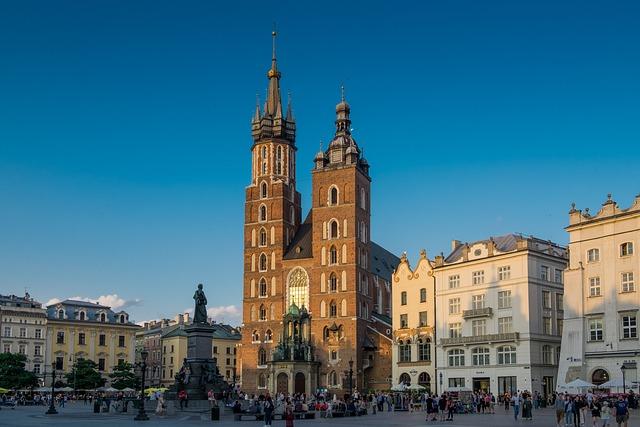
Recommendations for Enhancing natos Response to Polands Military Expansion
As Poland embarks on an ambitious military expansion plan, NATO must adapt its strategies to effectively address the shifting dynamics in Eastern Europe. A multifaceted approach is crucial to not only support Poland’s military aspirations but also to ensure regional stability. Recommendations include:
- Enhanced Intelligence Sharing: Strengthening intelligence collaboration among NATO members can provide critical insights into potential threats and enhance situational awareness.
- Joint Military Exercises: Increasing the frequency and scale of joint military drills with Polish forces will improve operational readiness and reinforce the alliance’s collective defense posture.
- Strengthening Defense Infrastructure: Investments in infrastructure improvements, such as logistics and supply chains, will enable NATO to respond swiftly to any regional crises.
Moreover, NATO should consider establishing formal frameworks to address Poland’s pursuit of nuclear capabilities. Developing a clear policy regarding nuclear sharing could not only legitimize Poland’s ambitions but also maintain the balance of power in Eastern Europe. Key considerations include:
- Clear Guidelines for Nuclear sharing: Developing a obvious framework outlining the conditions under which nuclear capabilities can be shared among NATO allies.
- Diplomatic Engagement with Neighboring Countries: Proactively engaging with countries like germany and the Baltic states to alleviate concerns surrounding Poland’s nuclear ambitions and promote regional dialogue.
- Continued Political Support: Ensuring a united NATO front to provide political backing for Poland’s military initiatives, enhancing both deterrence and assurance for member states.

Evaluating the Balance of Power in Central and Eastern Europe
The geopolitical landscape of Central and Eastern Europe is currently undergoing significant shifts, with Poland emerging as a focal point in discussions about military strength and nuclear capabilities. The recent drive by Poland to acquire access to nuclear arms reflects deep-seated concerns about regional stability, particularly in light of persistent threats from neighboring Russia. As Poland intensifies its military ambitions, there are several key factors to consider regarding its potential impact on the balance of power in the region:
- Deterrence Strategy: Poland’s pursuit of nuclear arms aims to establish a stronger deterrent against any aggression from external powers, thereby enhancing NATO’s overall strategic posture.
- Increased Military Personnel: Plans to build a half-million-man army highlight Warsaw’s commitment to reinforcing its defense capabilities as well as ensuring readiness for any potential conflict.
- Regional Alliances: Poland’s military expansion could prompt neighboring countries to reevaluate their defense policies,potentially leading to an arms race or realignment of alliances.
Moreover, the ramifications of poland’s military growth are not confined within its borders but extend to the broader dynamics of European security. The response of NATO and the European Union will be crucial in shaping how this ambitious strategy unfolds.A key question remains: how will existing military partnerships adapt to Poland’s enhanced capabilities? This inquiry is particularly relevant in assessing compliance with international treaties and the potential backlash from non-NATO actors. A closer examination reveals the necessity for a coherent strategy among Western powers to balance Poland’s ambitions with the imperative of maintaining regional stability:
| Factors Influencing Military expansion | Potential Outcomes |
|---|---|
| Geopolitical Threats | Increased military investments and partnerships |
| NATO’s Response | Strengthened collective defense mechanisms |
| Regional Alliances | New security frameworks or arms race |
In Retrospect
Poland’s pursuit of access to nuclear arms and its ambitious plan to significantly expand its military forces illustrate a shifting dynamic in european security, driven by geopolitical tensions and regional threats. As Warsaw seeks to bolster its defense capabilities amidst concerns over potential aggression from neighboring countries, its actions could provoke a recalibration of military strategies across the continent. The implications of Poland’s military ambitions extend beyond its borders, raising critical questions about NATO’s collective security framework and the balance of power in Central and Eastern Europe. As discussions continue, the international community will closely monitor Poland’s next steps and their potential impact on regional stability.




